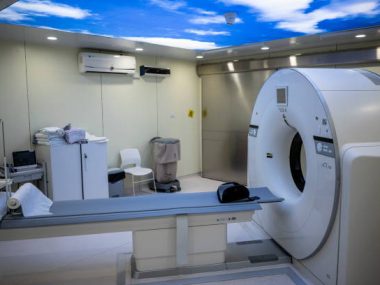What happens if you don’t use insurance money for repairs? In the realm of insurance, unexpected events can shake our lives, ranging from natural disasters to accidents that damage our property.
When such events occur, insurance provides a safety net in the form of financial compensation to help cover the costs of repairs and restoration.
However, what happens when you receive an insurance payout but decide not to use the funds for immediate repairs?
This seemingly straightforward question delves into a complex web of considerations, ranging from personal choices and financial strategies to legal implications and long-term property value.
In this article, we will delve into the multifaceted aspects of this scenario, shedding light on the potential consequences and factors to consider when contemplating whether to utilize insurance money for repairs or take an alternative path.
By understanding the ramifications of this decision, you can make informed choices that align with your priorities and safeguard your property’s well-being.
Also Read:
What Disqualifies from Long-Term Care Insurance?
Are Life Insurance Premiums Tax Deductible?
What Happens If You Don’t Use Insurance Money for Repairs?
Opting not to use insurance money for repairs can lead to a cascade of consequences.
While the funds might provide temporary financial relief, deferring essential repairs could result in escalating damage, compromising safety, and diminishing property value.
Neglecting repairs might violate the terms of your insurance policy, potentially leading to coverage issues in the future.
Delaying repairs can exacerbate the initial problem, transforming a manageable fix into a more extensive, costly endeavor.
Furthermore, neglecting safety-related repairs can endanger occupants and attract legal liabilities.
Property value might decline as visible damage and disrepair accumulate, affecting resale potential.
Insurance companies typically disburse funds with the expectation of restoration to the pre-damage condition.
Failing to utilize the money for this purpose could lead to disputes with insurers, potentially affecting your claim’s validity.
Communication with your insurer is crucial; some policies require proof of completed repairs before offering full coverage again.
Overall, while not using insurance money for repairs might offer short-term financial flexibility, the long-term repercussions can be substantial, encompassing safety risks, diminished property value, and potential insurance-related challenges.
Making informed decisions that balance immediate needs with long-term consequences is paramount.
Alternatives to Immediate Repairs with Insurance Money
When faced with the choice of immediate repairs using insurance money, alternatives exist that can provide flexibility while addressing the underlying issues.
One option is setting aside the funds in an emergency account, allowing you to accrue interest while evaluating the extent of necessary repairs.
This approach offers financial control and the ability to make informed decisions over time.
Investing the insurance payout into preventive measures is another avenue.
Using the funds to fortify your property against future damage, such as reinforcing structures or improving drainage systems, can mitigate risks and potential future costs.
Alternatively, consider using the money to upgrade or remodel, enhancing your property’s value in the long run.
Some circumstances might warrant negotiation with your insurer to allocate funds for other urgent needs.
If immediate repairs are not feasible due to personal constraints, discussing alternatives like temporary repairs, partial restoration, or documented plans with your insurance provider could be viable.
Ultimately, while not utilizing insurance money for immediate repairs carries risks, exploring alternative uses that align with your situation and priorities can offer valuable options.
It’s essential to balance financial goals, safety concerns, and the potential impact on your property’s overall condition when considering these alternatives.
Potential Consequences of Delaying Repairs
Delaying repairs, despite having insurance money available, can lead to a series of undesirable consequences.
Initially, minor damages that could have been addressed promptly might escalate into more severe issues, potentially compromising the structural integrity of your property.
This escalation could result in significantly higher repair costs and longer restoration timelines.
Moreover, safety hazards can emerge from neglected repairs, putting occupants at risk.
For example, leaving a leak unattended might lead to mold growth, which can adversely affect indoor air quality and health.
Inadequate repairs might also increase the risk of accidents or incidents, particularly in cases involving damaged electrical systems or compromised structural elements.
Further consequences include potential disputes with your insurance provider.
The purpose of insurance money is to restore your property to its pre-damage state.
Failing to utilize the funds for this purpose might lead to disagreements over coverage and claims, potentially complicating future insurance-related matters.
Delaying repairs can also impact property value. Visible damage and unresolved issues can deter potential buyers, leading to decreased resale value.
Additionally, insurers might be hesitant to provide coverage for properties with known, unaddressed issues, affecting future policy options.
Overall, the decision to delay repairs despite having insurance funds can result in amplified damage, safety hazards, insurance disputes, diminished property value, and a compromised overall living environment.
Prioritizing timely and appropriate repairs can help mitigate these potential consequences.
Also Read:
What Is a Certificate of Insurance?
Are Hearing Aids Covered By Insurance?
Conclusion
When it comes to insurance, choosing not to utilize insurance funds for repairs can trigger a domino effect of repercussions.
While it might offer short-term financial flexibility, this decision often leads to escalating damage, compromised safety, decreased property value, and potential insurance-related challenges.
Balancing immediate needs with long-term consequences is vital.
Making informed choices aligning with safety, property preservation, and potential legal obligations should guide your decision-making.
Ultimately, recognizing that timely repairs supported by insurance funds are a crucial investment in both the present and the future underscores the importance of thoughtful consideration.






